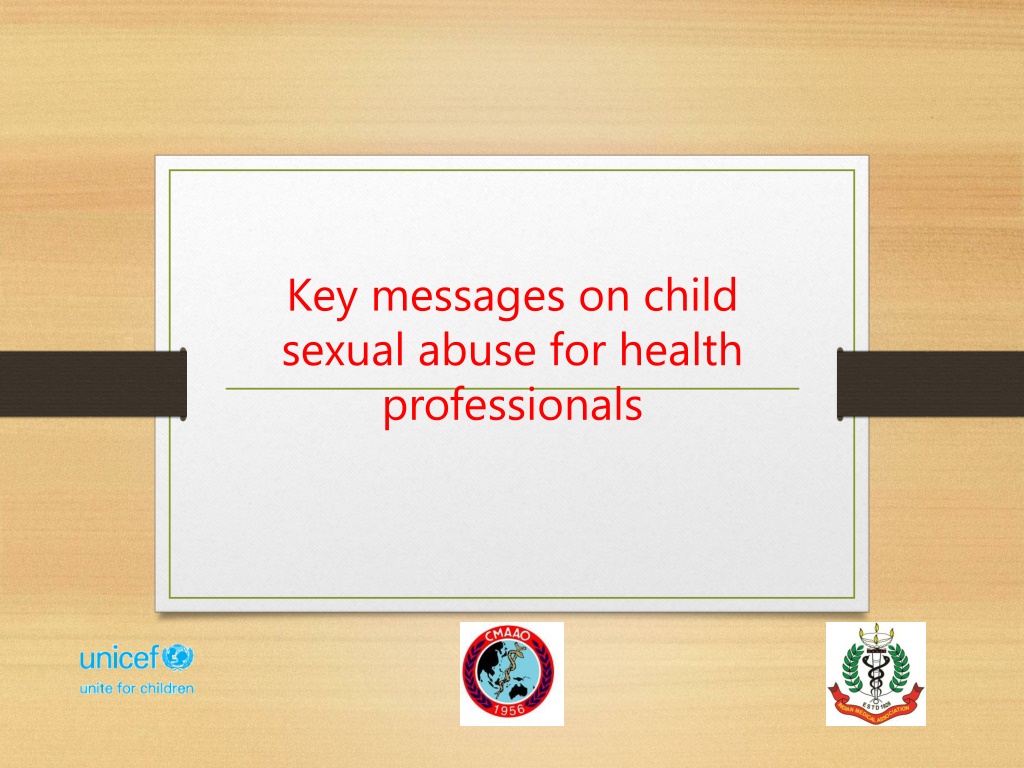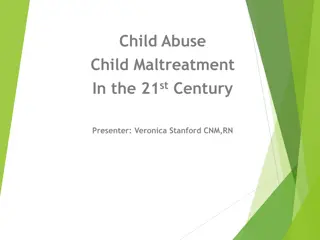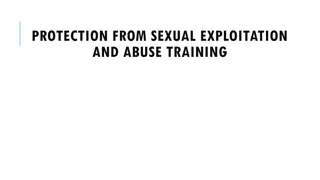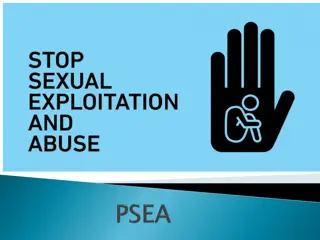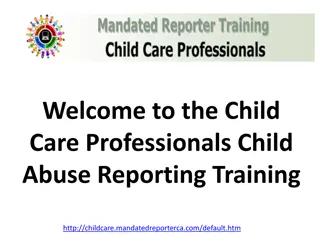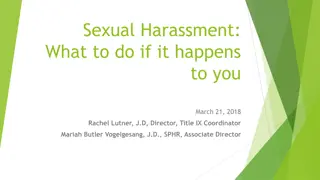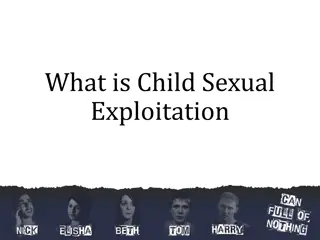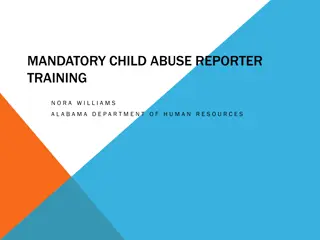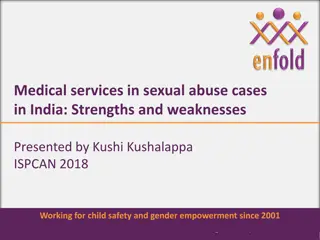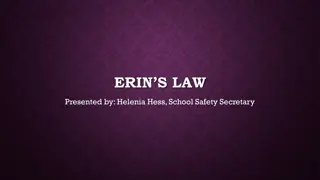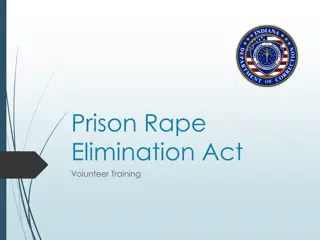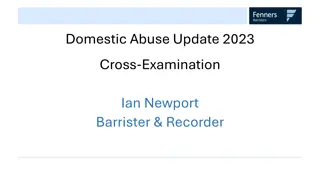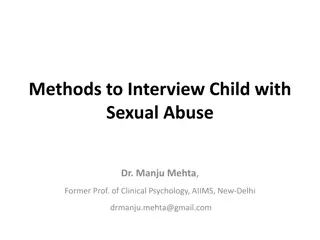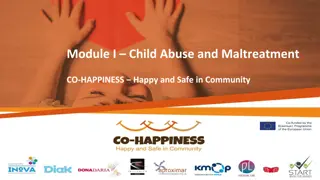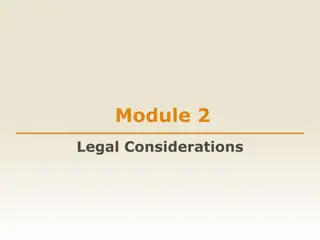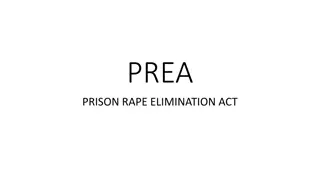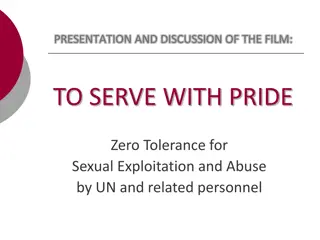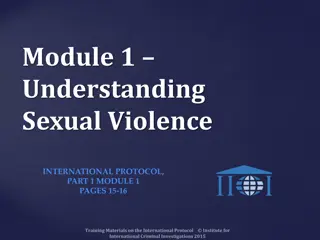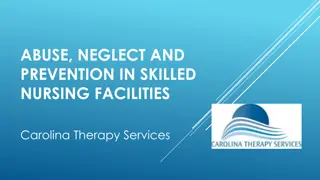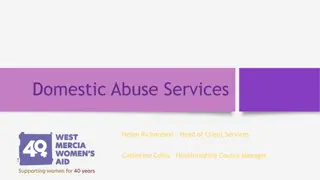Key Messages on Child Sexual Abuse for Health Professionals
Child Sexual Abuse (CSA) is a widespread issue with lifelong consequences on physical and mental health. Perpetrators are often known to the child, and abuse can occur in various settings. Health professionals play a crucial role in protecting children, providing care, and ensuring justice. Reporting abuse is mandatory, and timely medical and forensic examinations are essential. By offering support, guidance, and appropriate treatment, health professionals can help survivors heal and lead healthy lives.
Download Presentation

Please find below an Image/Link to download the presentation.
The content on the website is provided AS IS for your information and personal use only. It may not be sold, licensed, or shared on other websites without obtaining consent from the author. Download presentation by click this link. If you encounter any issues during the download, it is possible that the publisher has removed the file from their server.
E N D
Presentation Transcript
Key messages on child sexual abuse for health professionals
Key Messages on Child Sexual Abuse (CSA) CSA is a widespread phenomenon. According to an MWCD study, over 50% of all children are victims of CSA at some point. CSA is a major public health concern. CSA takes place in all settings: at home, school, in the community etc. Perpetrators are usually people that the child knows. The perpetrator builds trust with the child to prevent disclosure. At times, threats are used to ensure silence is maintained. The child tends to feel a sense of guilt, confusion and fear as a consequence.
Key Messages on Child Sexual Abuse (CSA) CSA has lifelong consequences on the physical and mental health of the child. The impact of abuse will depend on the duration and frequency of the exposure to abuse, the age of the child and the support network available. This does not mean that with appropriate care and counselling children will bear the consequences for life. If medical care and mental support are provided a child can heal and lead a healthy child.
Key Messages on Child Sexual Abuse (CSA) Doctors are in a unique position to protect children from sexual assault and its consequences. They can: Teach parents about safe, unsafe and uncomfortable touch and how to keep their children safe. Teach children how to protect themselves. They can provide appropriate care and treatment to the survivor. They can give social, psychological and legal guidance to the survivor and the family. They can help the process of justice delivery by conducting accurate and complete forensic medical examination and be willing to testify in court.
Key Messages on Child Sexual Abuse (CSA) Reporting of abuse is mandatory for medical professionals under POCSO Act. Emergency medical care is to be provided to an abused child under POCSO. This care has to be provided free of cost, by both private and government medical facilities. No FIR or magisterial permission is required. Medical examination requires: Medical history Medical check up to detect signs of abuse Mental health support to conduct the interview in a sensitive manner that does not traumatize the child The child s (if under 12) or the parent/guardian s consent. Forensic examination needs to be conducted within 96 hours and requires evidence collection such as blood, semen, sperm, hair etc. linking to perpetrator. Doctors should prominently display the Childline number (1098) in their clinics and hospitals. Any case of known or suspected child abuse or neglect can be reported to this number.
Key Messages on Child Sexual Abuse (CSA) Diagnosis of CSA is not always possible through physical signs. Sometimes signs will not be visible. The medical history and interview are key. Often the child will not disclose abuse easily. Disclosure is associated with fear and shame. Mental health professionals play a key role in supporting the early phase of detection, as well as the catharsis and normalization of behaviors.
